
ARTICLES
Articles
Indigenous Sovereignty in Native Australian Agriculture
Most of us can name one edible native Australian plant – the macadamia. But did you know that the macadamia has several Indigenous Australian native names, including Boombera, Jindilli (or Jindill), Kindal Kindal, Bauple (or Bopple), Gyndl, and Gumbar? What is not always obvious to consumers of native foods – aka ‘bush tucker’ or ‘bush foods’ […]
>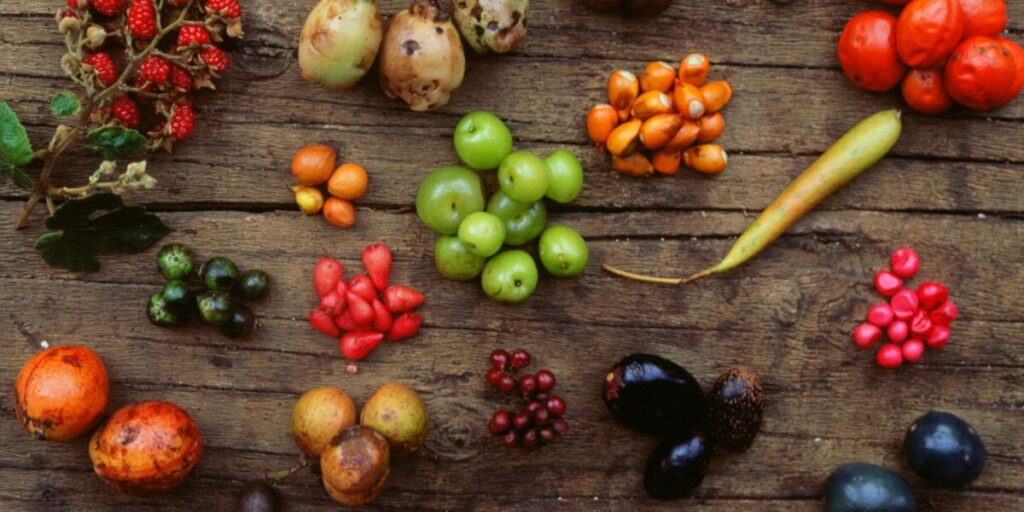
The soil soul cycle
According to The UK Centre for Ecology and Hydrology, just one teaspoon of soil contains approximately one billion individual microorganisms. This is equivalent to one eighth of the planet’s entire human population. Leading researchers indicate that these microorganisms are having significant impacts on our health and wellbeing. In a global assessment published by the Food […]
>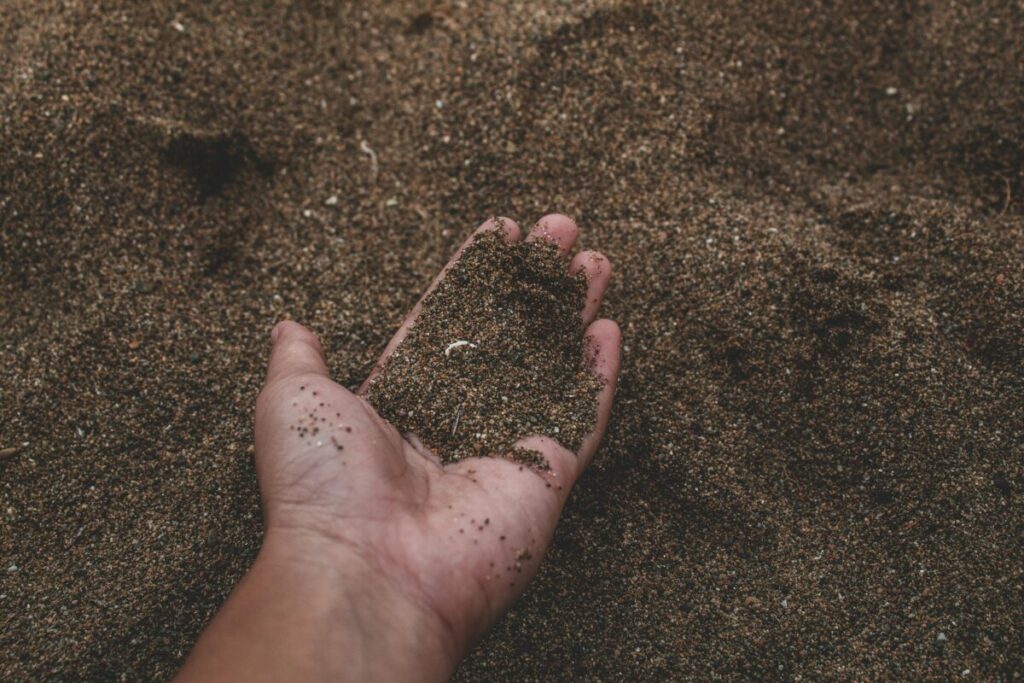
Let's Split
One of the most awe-inspiring activities we do at PlantingSeeds is to split native bee Tetragonula carbonaria (Tc) hives every 18 months to two years. This is to provide hives of this extraordinary bee to schools on the B&B Highway – a way of paying it forward. We have been fortunate this year to have […]
>
Countering the Urban Heat Island Effect: How plantings bring down the temperature
The recently published National Climate Risk Assessment delivers confronting predictions of Australia’s environmental future. The report highlights the far-reaching risks that climate change poses to Australia’s future, with specific attention on urban environments, the escalating threats from heatwaves, sea levels rising accompanied by coastal flooding, and increasing weather variability. These impacts are expected to place […]
>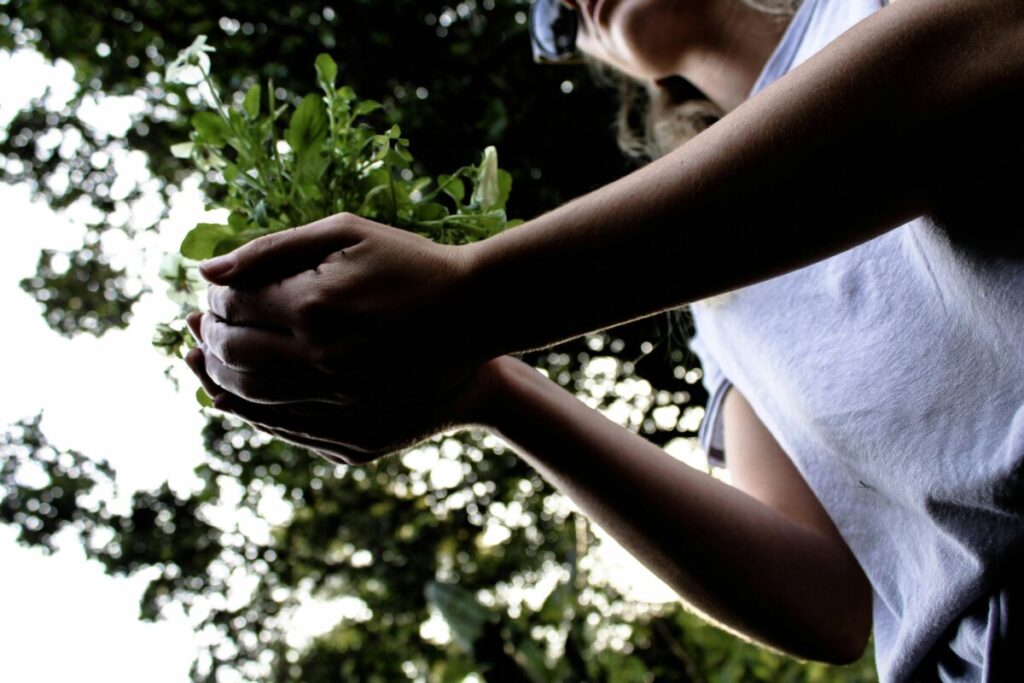
Climate Change Report: Pollinators in the Spotlight
Australia’s first climate risk assessment has emphasized the urgent need for action on climate change. The 2025 National Climate Risk Assessment review finds 1.5 million Australians are at risk from sea level rise by 2050. The National Climate Risk Assessment modelled impacts under three scenarios: 1.5C of warming, 2C of warming and 3C of warming. […]
>
State of the Environment: Latest Report - Focus on the impacts of land clearing
EXPLAINER Biodiversity levels in New South Wales are declining rapidly, according to a report submitted to the State Parliament on the 26th of June 2025. The report indicates that land clearing is one of the major threats to our native landscape. The State of the Environment Report (‘SoE Report’), prepared by the New South Wales […]
>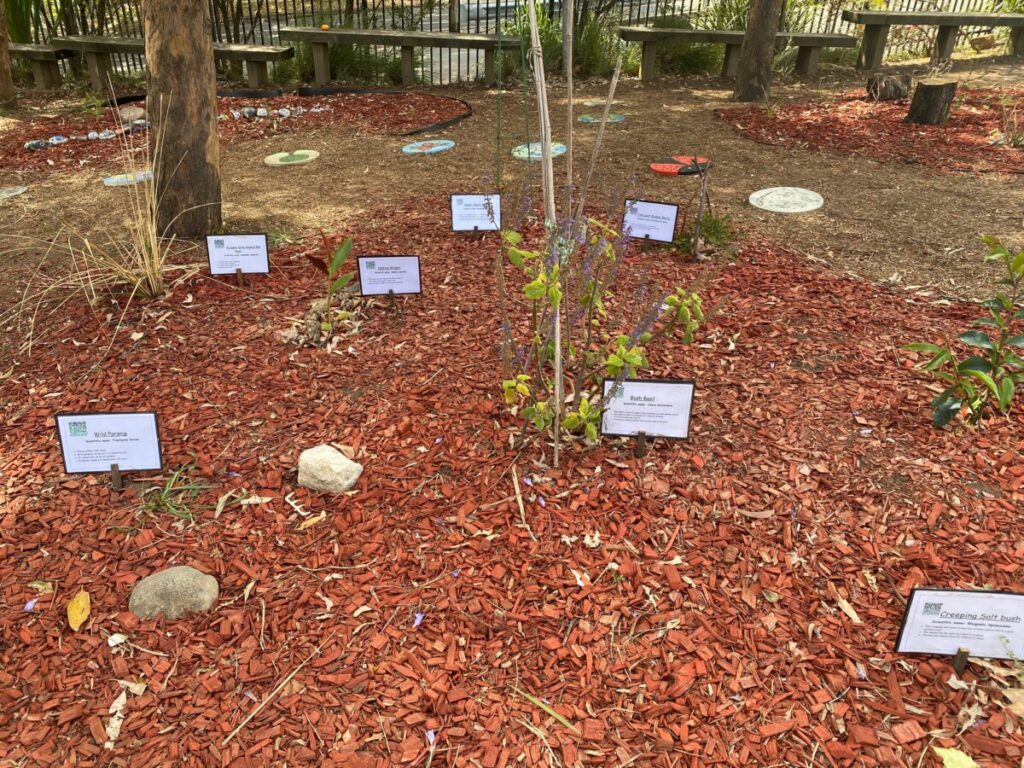
Benchmarking Biodiversity
With the Australian government and environmental experts promoting the idea of nature repair and regeneration becoming aspirational, biodiversity assessments become imperative. If we are to support native species and encourage healthier ecosystems, we need to determine trends, status, and distribution of fauna and flora to establish effective strategies to conserve and protect them. Biodiversity assessments […]
>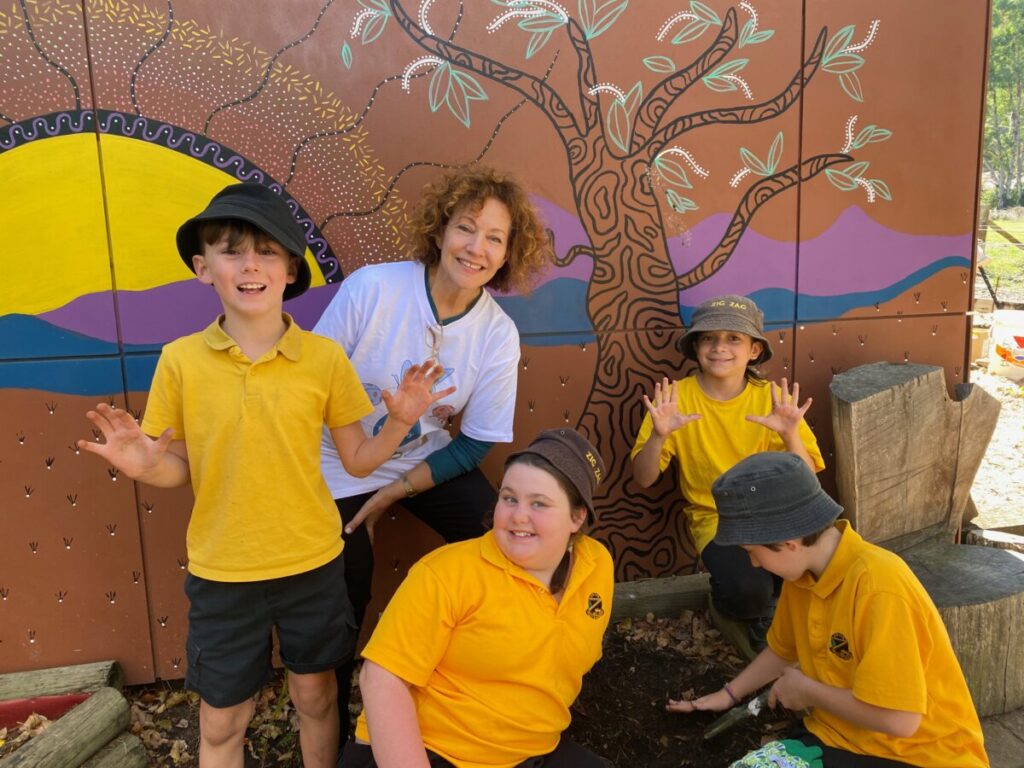
How to turn your backyard (or balcony) into a bee haven
Australia is home to a dazzling array of pollinator species. These include not just the familiar European honey bee, but also thousands of native species of bees, butterflies, beetles, wasps, moths, flies, hoverflies, birds, and even bats that all play essential roles in plant reproduction and food production. But globally and locally, pollinators are under […]
>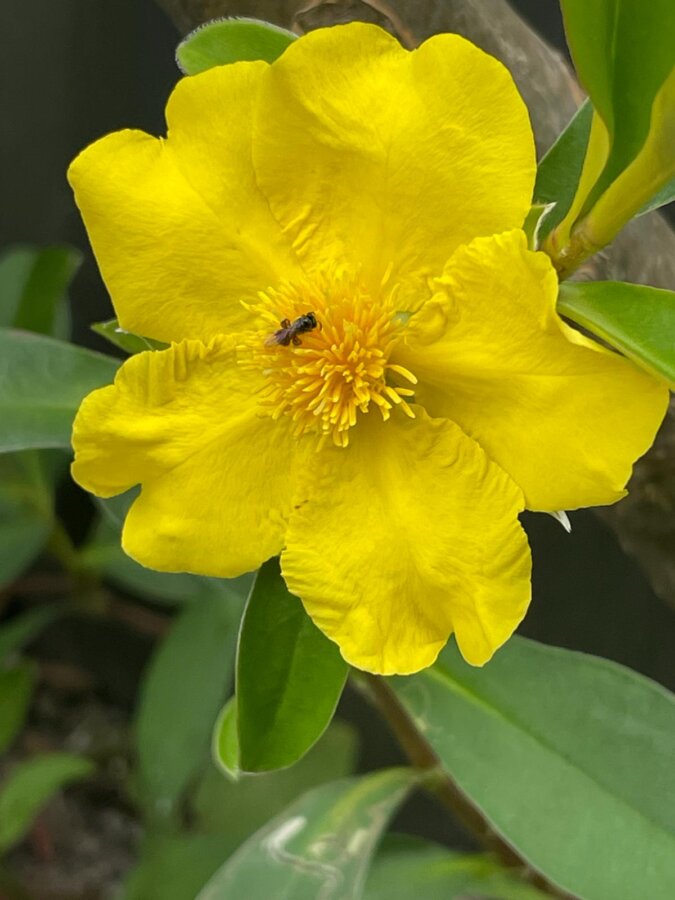
Taking on the heat
PlantingSeeds’ key mission is to support urban biodiversity. But climate change is in our sights as well. By teaching students – younger and older Australians – about the urban heat island effect (UHI) and providing tangible ways for them to witness how green and synthetic spaces vary wildly in temperature, we learn that plantings can […]
>
Planting for Country – A Yarn with Peter Cooley
“The sky is connected to Country – the moon, the tides. The first problem was separation. If you separate the plants from the animals, both disappear.”—Peter Cooley Image supplied by Peter Cooley and (C) Indigigrow Peter Cooley, a proud Bidjigal man from Sydney’s La Perouse, is the co-founder and CEO of First Hand Solutions Aboriginal […]
>
Schools – Citizen science and BioBlitzes need You!
PlantingSeeds is proud of its early foray into the world of citizen science and BioBlitzes. This year marks the 4th year we have been running the National School Citizen Science BioBlitz (in September’s Biodiversity Month). It is supported by the CSIRO’s Atlas of Living Australia, the Australian Citizen Science Association and various State Departments of […]
>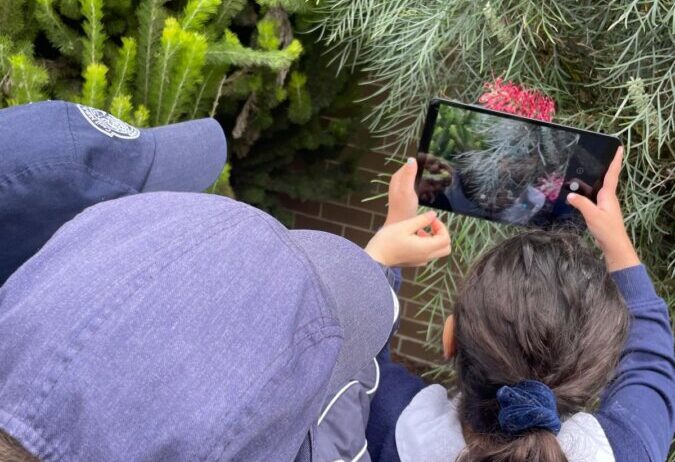
iNaturalist is celebrating 250 Million verifiable observations!
The discovery of a Praying Mantis species in southern Thailand, a new wasp species discovered by high-school students in Beerwah, Queensland, and a study of the evolution of Luna moths in relation to predation and other environmental constraints. These are a few of the discoveries and new research generated by community members and data on […]
>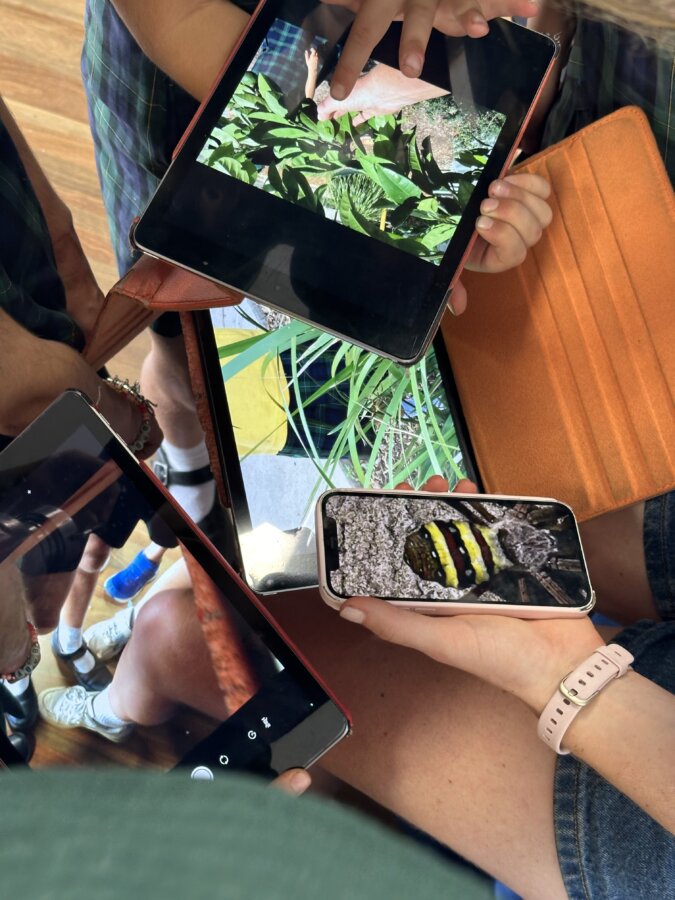
Courting Conservation: The Legal Battle for a Liveable Planet
New legal moves offer hope for positive environmental actions. Taking the government to court over climate inaction is no small feat. However, every act for the environment is capable of sparking meaningful change. While setbacks occur, especially within a complex legal framework, these bold acts are encouraging others to become advocates for the environment. July […]
>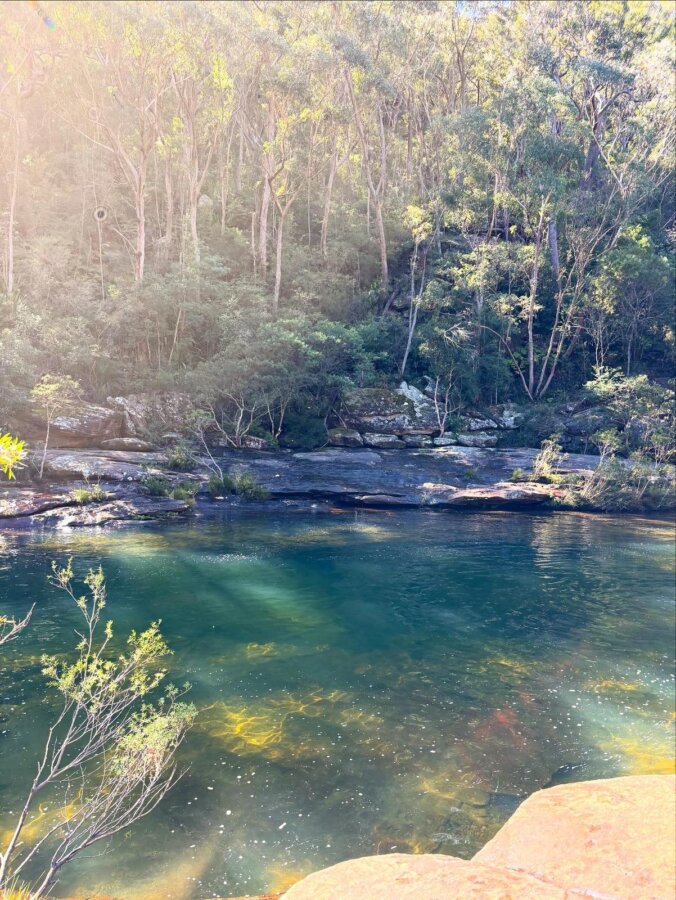
The Bee Team
Think about this for a moment: one out of every three mouthfuls of the food you eat depends on pollinators. Without bees, birds, flies – yes certain flies – and other amazing creatures, many of the vegetables and fruits you love would cease to exist. And let’s not forget coffee, chocolate, medicines, fabrics and other […]
>
All About Australian Brush Turkeys
With their black feathers, bright head colours and large size, the brush turkey can make an impressive sight. And it can also be a bit of a nuisance, especially for people planting gardens. That’s because the males rake up enormous leafy mounds for the females to lay their eggs and your garden could be providing […]
>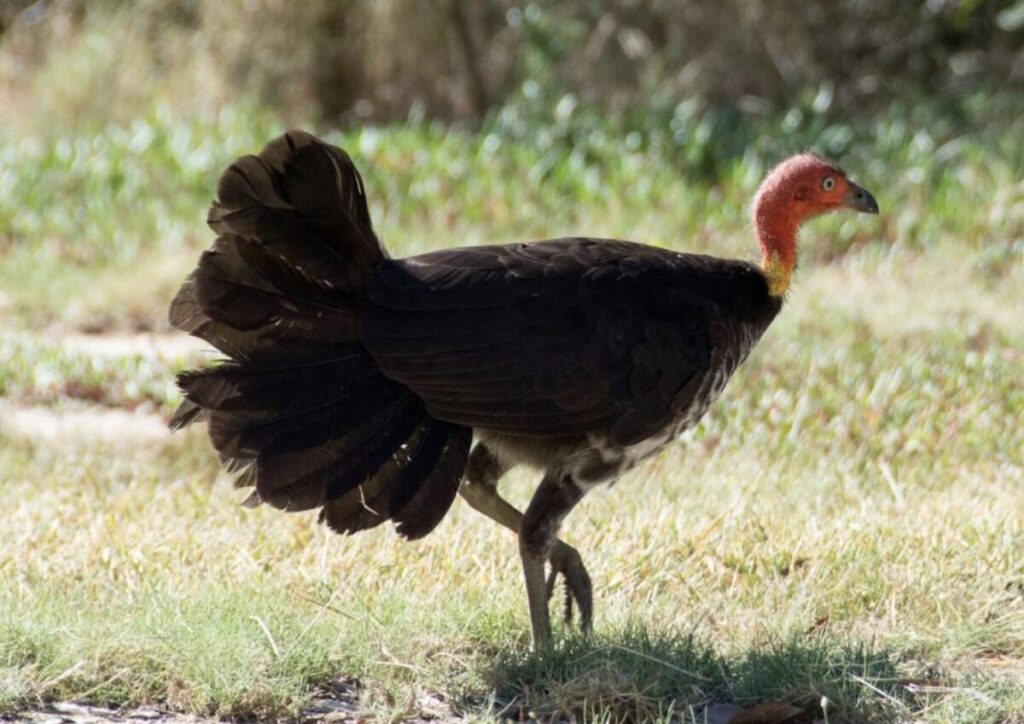
Cooling down the neighbourhood
Countering climate change is often perceived as the holy grail of environmental aspirations. While PlantingSeeds’ programs focus on urban regeneration – planting, habitats and citizen science included – we also address climate change by teaching about it and countering the urban heat island effect. We were fortunate enough to receive permission from @NASA Kids to […]
>
Bee’ing grateful for winter pollinators
While we feel the urge to hibernate or at least retreat inside when the temperatures drop, there are many native pollinators that continue their work in the cooler months to ensure plants, including food plants, are germinated and flourish. Research has found that the native stingless Tetragonula carbonaria bee instinctively knows that 18ºC is the […]
>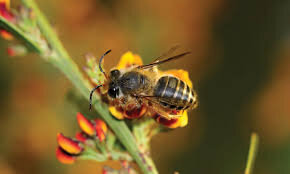
Why iNaturalist and the B&B National School BioBlitz is a natural!
The online site iNaturalist (https://inaturalist.ala.org.au/) could possibly be the most notable enabler of citizen science at present. And with the current age of technology we live in, the contributions from citizens are vast and various. The iNaturalist site allows a community of observers, identifiers and taxonomy curators to record an encounter with an organism at […]
>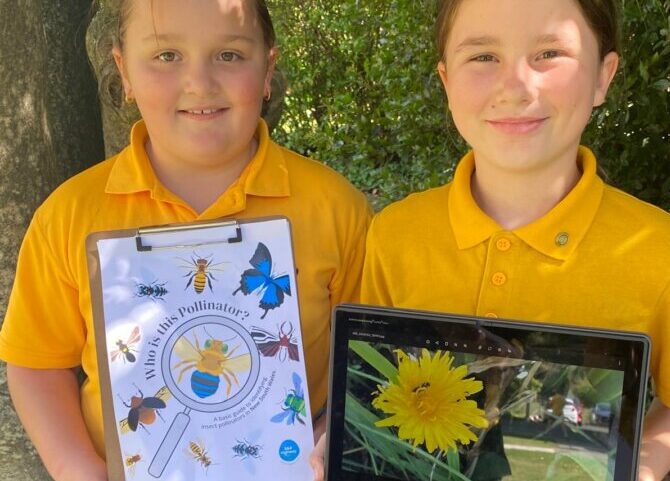
A strategy to cut through ecoanxiety & the infoglut
At PlantingSeeds we are all passionate about what we do. We know the threats to our environment, to our native plant, insect and animal species and we know that there are immediate practical actions we can take to mitigate the harms and build a diverse and secure future. But there’s a further challenge: how do […]
>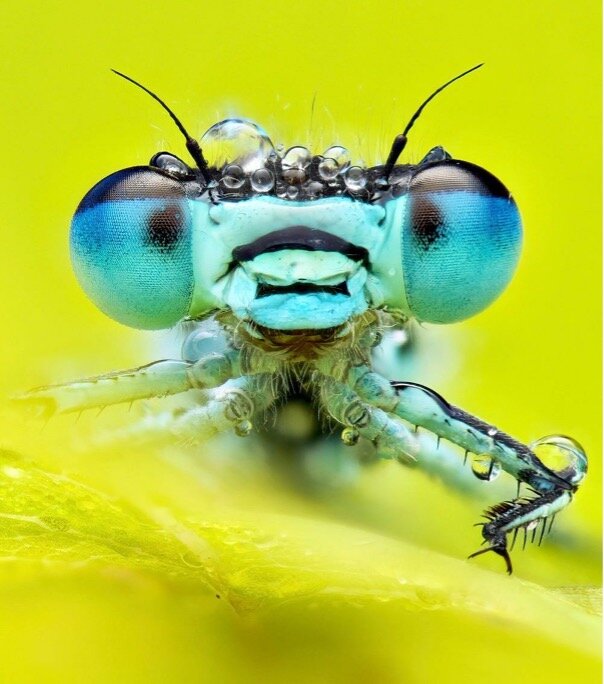
PlantingSeeds – Alignment with United Nations Sustainable Development Goals
By increasing biodiversity and pollinator numbers through the B&B Highway program, PlantingSeeds aligns with the following United Nations Sustainable Development Goals (SDGs). Direct Alignments SDG 3: Good Health and Well-Being Supporting physical and mental health through connections with nature Improving wellbeing through community action Greening initiatives to reduce urban heat island effects SDG 9: Industry, […]
>
Making outside learning in
In case you needed convincing - or if you need some research to convince others of the benefits of outdoor learning, some recent studies present compelling evidence of why we need to get students outdoors. Brain development, physical development, emotional regulation, appreciation for nature that is urgently needed in a world where disconnection is rife… […]
>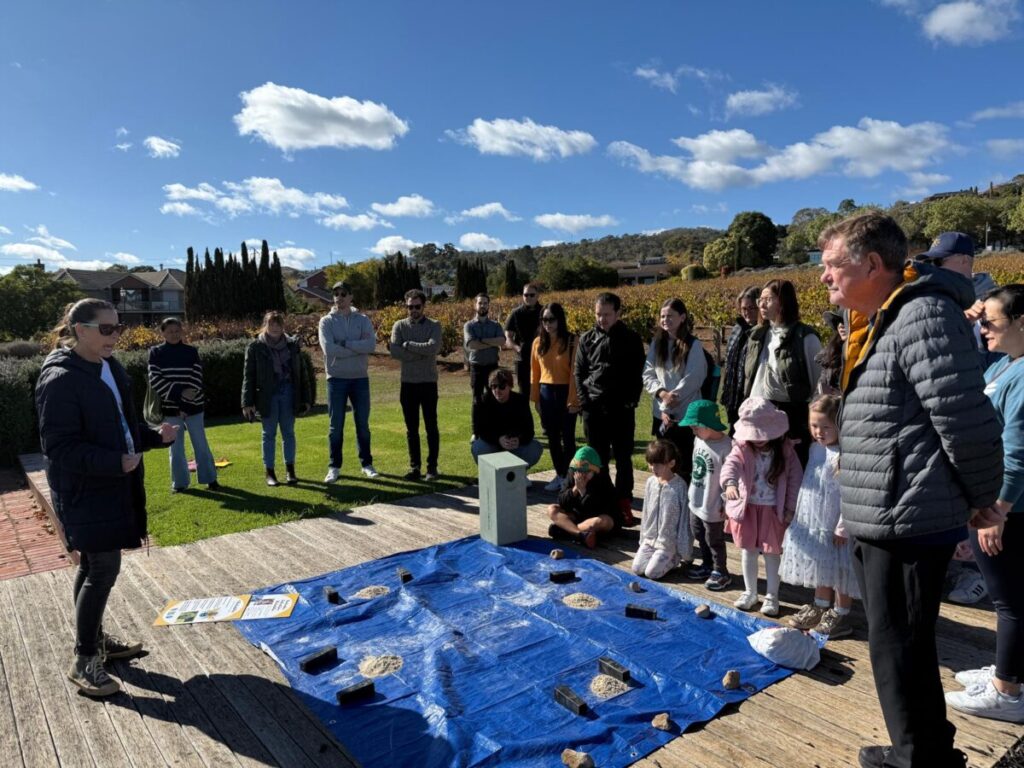
Native Bees in the news
One of PlantingSeeds’ missions – to support and propagate native bees – was the key focus of a recent Sydney Morning Herald and The Age feature. With mid-year’s World Bee Day generally shining the spotlight on the yellow and black European bee, we choose this time to promote our 1700 + native bee species to […]
>
Bringing back the Bogong Moth
The bogong moth (Agrotis infusa), once an abundant presence in the Australian skies, is now vanishing. Known for its extraordinary migratory patterns and revered in Aboriginal culture, this unassuming insect plays a vital role in both ecological balance and Indigenous heritage. But in recent decades, the bogong moth has faced a dramatic population collapse and […]
>
Follow the rain - the yellow-tailed black cockatoo
Have you noticed different bird species appearing in seasons that are different to your childhood memories? Sydneysiders will have noticed the yellow-tailed black cockatoo in greater numbers in summer. In the Sydney region, they have traditionally been more visible during cooler months, but in recent years, their presence has been increasingly recorded during summer. This […]
>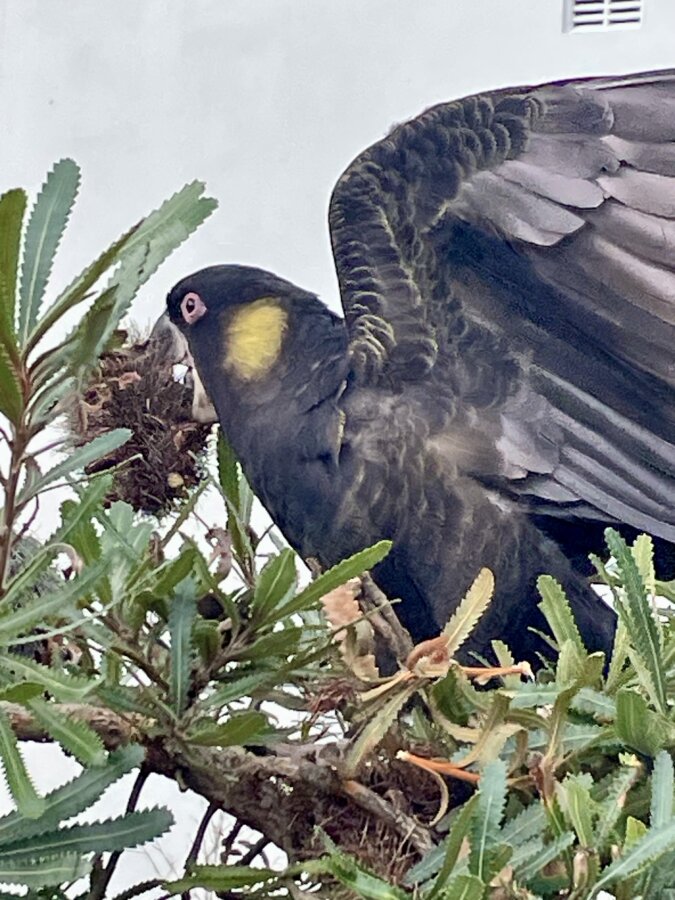
World Bee Day 2025 - Celebrating our Native Bees!
This May 20th marks World Bee Day 2025 - a day to celebrate our pollinators and the many integral roles they play in our ecosystems. The 2025 theme is ‘Bee Inspired by Nature to Nourish us All’, emphasising the irreplaceable role of bees in both our global agriculture systems, and our natural ecosystems. While the […]
>
PlantingSeeds’ South Australian Program Begins
Through Penfolds Evermore Australia Grant PlantingSeeds’ B&B Highway officially establishes itself in Adelaide this April 2025 thanks to a generous Penfolds’ grant. The Penfolds Evermore Australia grant funding has allowed PlantingSeeds to take root in South Australia to build a pollinator-friendly regenerative and educational community initiative. Our B&B Highway program – Bed and Breakfasts for […]
>
A Milestone Genetics Study: Key Takeaways for our Pollinators
On the 29th of January a groundbreaking scientific study was published by Nature, giving insight into global genetic diversity trends over a 34-year period. The results are an intricate, instructive guide on the human disturbances causing the most harm, as well as the conservation interventions proving most effective. By applying a landmark meta-analysis methodology, the […]
>
Pollinator private investigation 101
A bee or not a bee? That is the question!Identifying pollinators can be a challenging task when exploring your community garden, tending to your home garden, or while taking a stroll in the park. However, there are many resources available to help you identify the bees, hoverflies, butterflies and other important pollinators in your neighbourhood. […]
>
The value of PlantingSeeds
At a time when ecological anxiety is high, and many are overwhelmed with an associated feeling of helplessness, the role of environmental organisations is imperative for restoring a sense of hope from the ground up. At PlantingSeeds, we see the necessity to consider all aspects of environmental revival, and the much-overlooked role of pollinators is […]
>
Small Green Spaces, Big Impact: Rethinking Urban Biodiversity
Small green spaces making a big impact It’s time to elevate the value of small green spaces. Up until recently, the prevailing view was that a larger green urban area was superior to numerous small spaces of greenery in supporting biodiversity. But new research is turning that view on its head. While large parks and […]
>
Biodiversity & Climate: A Critical Connection
Biodiversity: A Climate for Change? Until recently, when people talked about environmental issues, they generally referred to climate change and its impacts. There is now growing recognition of the implications surrounding biodiversity loss. At PlantingSeeds, we are passionate about educating about both issues and the ways they overlap. Importantly, enhancements of biodiversity can help reduce […]
>
Invertebrates – our unsung biodiversity heroes – need help
Titled: ‘This is the way the world ends; not with a bang but a whimper’, an alarming new study published in December 2024 in the academic journal ‘Extinction’, points to the compelling nature of our work at PlantingSeeds which supports pollinators and particularly invertebrates. PlantingSeeds’ B&B Highway and its other vital programs strive to help […]
>
For your library of life: The Bee Squad - Out Soon!
The Bee Squad: Boosting biodiversity in your neighbourhood Due for February 1st release and available for a 20% discount pre-order, Dr Judy Friedlander, PlantingSeeds' founder and CEO's new book gives children (and their parents) the tools and ideas they need to take charge. The Bee Squad is a fun, informative and practical guide to help […]
>
Celebrating 2024’s National Schools’ BioBlitz Champion!
Eleven-year old Rocky D. from Melbourne’s northern suburbs is this year’s National Schools’ Citizen Science B&B BioBlitz Superstar! Posting almost 1,500 observations including birds such as a galah, a dusky moorhen and red-rumped parrot, plants such as the slender thistle, strawberry clover, golden wattle and ivy leaved violet, insects such as the plantain moth and […]
>
Pollinators Around the World
Since our team is composed of people from around the world who love travelling, we thought it would be fun to share the different pollinators they've spotted during their adventures. Monarch ButterflyDanaus plexippus Wisconsin, USA Monarch butterflies (Danaus plexippus), Wisconsin’s state butterfly, are a common sight in Southern Wisconsin from mid-May to late October. Known […]
>
Native Lawn Alternatives
In a previous article, we discussed the drawbacks of turf grass (PlantingSeeds). In this feature, we explore sustainable alternatives to traditional lawns. Maintaining a traditional grass lawn involves regular work and raises significant environmental issues. To achieve a particular aesthetic look, grass lawns require regular upkeep: mowing, fertilising, and consistent watering. This maintenance not only […]
>
First up – First Nations
Supporting initiatives that care for Country PlantingSeeds Projects acknowledges and proudly supports First Nations peoples in Australia in their active pursuit of caring for Country. Here, we shine the spotlight on three organisations owned and run[JF1] [JM2] by First Nations peoples in Australia that are dedicated to sharing their knowledge and inviting others to learn more […]
>
The ABC’s of Aussie Bees
While sugarbag bees and Blue-banded bees are having their moment in the sun, there are many other unsung bee heroes flitting about in Australian landscapes pollinating and helping our environment. Most native bee species – in fact, over 99 per cent of them – are described as ‘solitary’, meaning they do not live in hives. […]
>
Metamorphosis: An ode to change agents
We know about the very hungry caterpillar who goes through a beautiful transformation after munching through a garden deli of delights. But do we know about the many other insect species that undergo this process of metamorphosis? In fact, more than 80 per cent of insect species and possibly around 60 per cent of all […]
>
Spring into Learning: Native Plants, Bush Tucker, and Connection
Here in Australia, our native flora offers a chance to reconnect with Country, culture, and biodiversity. And many native plants are also used for culinary purposes and are described as bush tucker or bush foods. Whether in a school, home or workplace, creating a bush tucker garden is a fun, interactive way to learn. An […]
>
Uncommon Pollinators
Self, wind and water pollination: The Hidden World of Autogamy, Anemophily, and Hydrophily Conversations on pollination are almost always centred around bees, birds, or butterflies, but what about less common forms of pollination? Did you know that there are self-pollinating plants? Or that wind and water can be pollinators too? About 10 to 15 per […]
>
A Conversation with PlantingSeeds’ Artist-in-Residence Elyssa Sykes-Smith
Enriching our programs and impact, PlantingSeeds welcomes our new multi-award winning Artist-in-Residence Elyssa-Sykes Smith. Elyssa is an interprofessional artist working across sculpture, installation, performance, socially-engaged projects, education, and health research. With an upcoming sculpture at Sydney’s prestigious Sculpture by the Sea, Bondi, Elyssa is in demand and those who experience and engage with her PlantingSeeds’ works […]
>
The real buzz about bees
Bees and buzzing are common bed-fellows but only a select few species of bees are buzz pollinators. And studies reveal that the buzzing reverberating nature of buzz pollinators is integral to the reproduction of native plants and in some cases, food plants. Australian buzz pollinators have also been found to have special abilities and lead […]
>
Update on Varroa Mite Article
Draft 3Verses the Varroa In June 2022, the arrival of a tiny mite in Australia marked a pivotal moment for the nation’s honey bee producers. The Varroa destructor mite, present in every other country except Australia until then, was detected in New South Wales, sparking concerns among farmers and beekeepers nationwide. Understanding the Threat The […]
>
Bees' knees
You know you have made it when there is a global day named after you. So bees should be happy with the annual World Bee Day that falls on May 20th around the world. PlantingSeeds is also appreciative of the fact that the NSW Department of Education focused on our B&B Highway initiative for World […]
>
Celebrating Lismore's Biodiversity on June 1st
Families are invited to this special event from PlantingSeeds’ B&B Highway. Featuring local groups and organisations such as Goonellabah Tucki and Richmond Landcare groups, Lismore City Council, Ngulingah Local Aboriginal Land Council, Bangalow Koalas, Firewheel Nursery, Friends of the Koala nursery, Bee Native Australia and Sugarbag Bees. Children can: For the adults: Register here: https://events.humanitix.com/the-b-and-b-highway-come-to-tucki-tucki-creek […]
>
The Gist of GIS
If you have not heard of GIS, chances are a primary school student can explain what it is. Standing for Geographic Information Systems, it is enabled by the fact that most places in the world have a location reference. PlantingSeeds is using GIS to map out threatened pollinators and the plants they need. And many […]
>
New study points to popular garden features helping wildlife
You may have installed a bird bath in your garden to attract birds. There may be a few wildlife boxes in neighbourhood trees nearby. And you may be wondering if they are effective in supporting biodiversity? Well, rest assured. A WA study, just published in the ‘Urban Ecosystems’ journal, shows that local nature is very […]
>
Turf Wars: Where is the grass greener?
Turf wars are currently being played out on sporting fields, schools and in residential landscaping. The focus is pitching real grass against the artificial variety with many opponents very concerned about the health and environmental impacts of synthetic grasses. Advocates argue that less maintenance and weather readiness make artificial turf attractive. In March 2024, the […]
>
PlantingSeeds at the Nature Positive Cities Symposium
PlantingSeeds’ Dr Judy Friedlander presented at the recent EIANZ 2024 Nature Positive Cities Symposium in Sydney. She joined governmental, academic and business leaders to discuss how urban areas can rise to the challenge of supporting biodiversity. The conference at Sydney’s Sheraton Grand was focused on cities with key stats coming into play: As a precursor […]
>
The spectacled flying fox
The spectacled flying fox In the north-eastern regions of Queensland, from the lush mountains of Tully to the sandy beaches at the tip of Cape York and islands in Torres Strait, is an unsung guardian of biodiversity—the spectacled flying fox. This remarkable species, also known as the spectacled fruit bat, has a crucial ecological role […]
>
Banking on banksias – glory to gums
Australia features an estimated one million – give or take a few – different native species: mammals, frogs, invertebrates, reptiles and flowering plants, of which 80% are unique to our country. We spotlight two of our most iconic genus – banksias and eucalypts – to illustrate how they offer vital food and homes to unique species - in this case, three […]
>
“On The Verge”: Greening Sydney’s Urban Areas
When Lane Cove resident, Alan King, received an environmental newsletter from the Council introducing “On the Verge”, a new verge revegetation program, he knew he had to be a part of it. As an active member in the Lane Cove Council Bushcare and Backyard Habitat programs, he already had a deep appreciation for native plants. […]
>
Protecting Hollow Habitats: Vital For Australia's Unique Wildlife
Australia's rich and diverse ecosystem is home to some of the world's most unique and captivating species. However, this natural treasure trove faces a significant threat: the loss of hollow habitats. Hollows, the cavities found in aged trees, play a critical role in supporting various wildlife species. In this article, we'll explore the importance of […]
>
Primary And Secondary Pollinators: Nature's Dynamic Duo
Why are pollinators important? When you think about pollinators, images of honeybees likely pop up in your head. And rightfully so, after all, it seems like all people care about is bees as pollinators and that they spread pollen around and sustain plant populations. Yet, there are so many other pollinators that you might have […]
>
Battling For Survival: Greater Gliders And The Impact Of Bushfires On Biodiversity
The devastating bushfires that ravaged Australia in recent years had a profound impact on wildlife, resulting in a decline in the number of species, including the Greater Glider (Petauroides volans) in the Greater Blue Mountains Area (GBMA). Greater Gliders: An Enigmatic Marsupial The Greater Glider, a remarkable arboreal marsupial, finds its habitat in eucalypt forests […]
>
Large Positive Changes From Small Urban Greening
One of our PlantingSeeds educators in Victoria, Tyler King, has recently co-authored an academic paper on the positive ecological benefits of small urban greening actions. The research was conducted on a small greenspace – less than 200m2 in size – which was adjacent to a major road and surrounded by multi-storey buildings. The study was conducted […]
>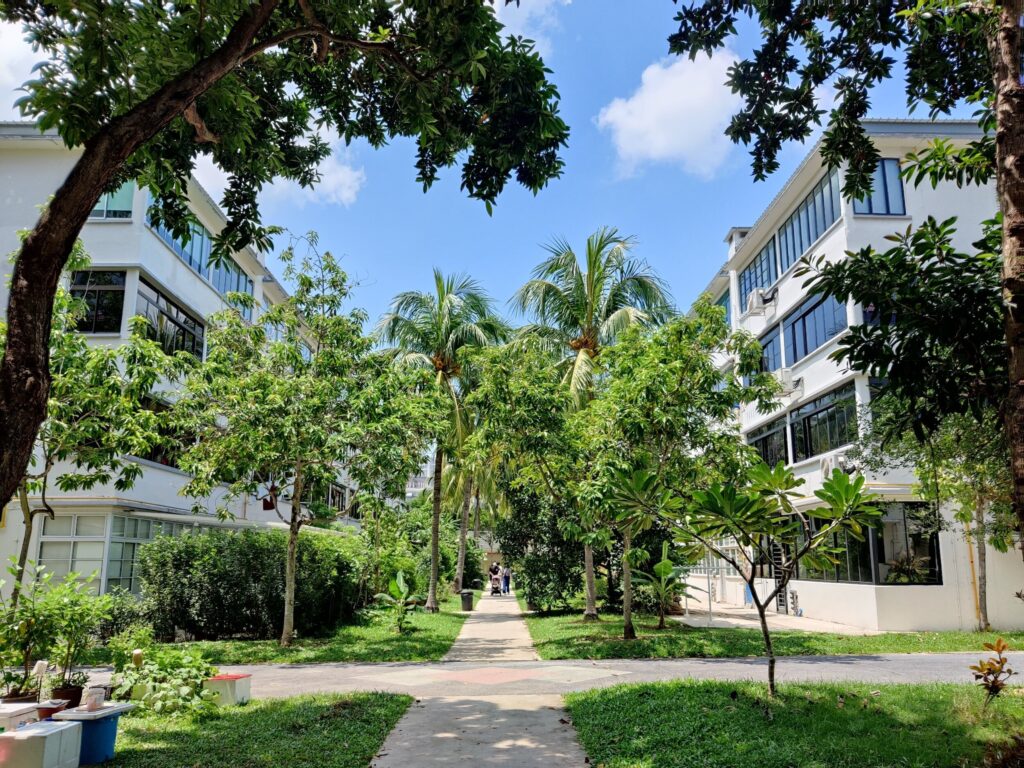
Support From ACSA For Our National School Citizen Science B&B BioBlitz
The 2023 National School Citizen Science B&B BioBlitz is now happening. While we are looking ahead and excited about all the upcoming observations from schools around Australia, we also look back at the successful 2022 BioBlitz supported by an Australian Citizen Science Association (ACSA) Seed Grant to PlantingSeeds Projects. This grant enabled us to kickstart […]
>
Banishing Bad Bugs: The Power Of Natural, At-Home Pesticides
Are you looking for a way to rid your garden of pesky pests, but also want to avoid using toxic chemicals? Imagine a world where you can take a greener approach to pesticides, some of which you can create with unused materials you already have lying around your home. The secrets to harnessing the power […]
>
Getting Out Of The Classroom - Why It's Important
Technology in the classroom is becoming more prominent each year. The instantaneous access to information is undoubtedly beneficial for students, although the sedentary lifestyle that screens promote is not. Attention Restoration Theory (ART) is one explanation for how exposure to nature helps children psychologically. It is thought that modern life requires extended periods of concentration, […]
>
Q State Of Play
Queensland is now very much a State of play for PlantingSeeds’ B&B Highway with seven schools now part of the regenerative corridor north of the NSW border. Our Queensland educator is busy planning education sessions and habitats in schools in Samford, Pine Rivers and Brisbane. PlantingSeeds was also a central part of the recent 2023 […]
>
The Case For Biodiversity And Pollination
It is estimated that half of the world’s insect species are rapidly declining, and a third are threatened with extinction. The rapid loss of biodiversity worldwide calls for an integrated global response. Factors such as urbanisation, deforestation, monocultural practises and the ongoing impacts of global warming have consequently posed threats to ecosystems. The global cost […]
>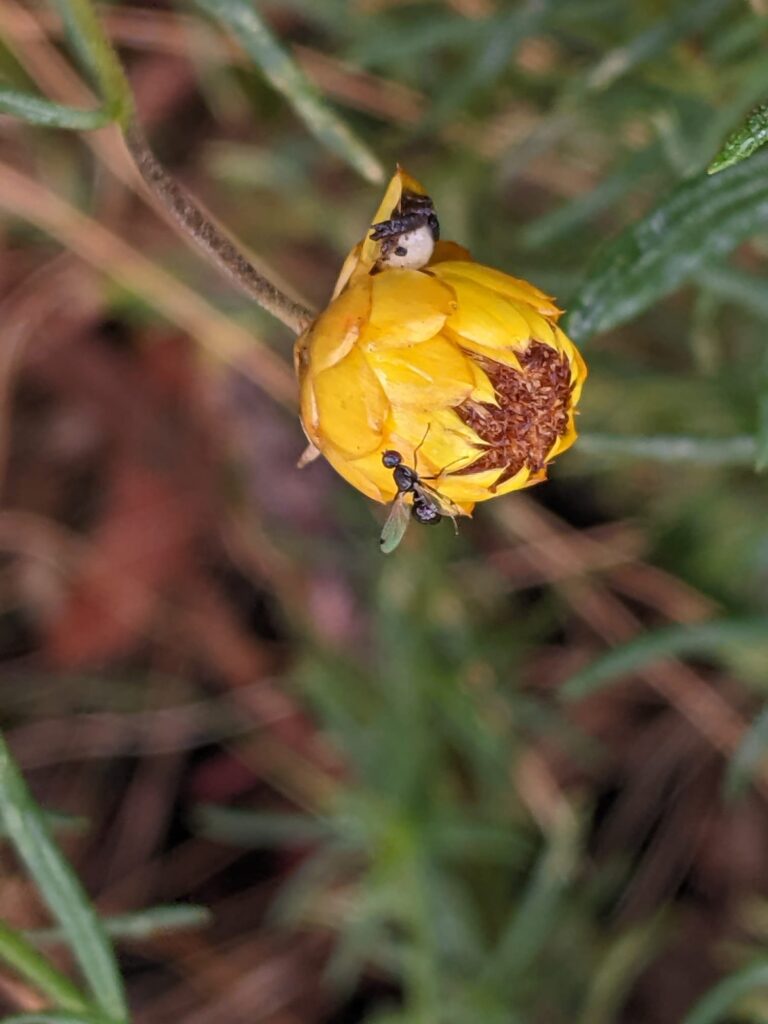
Parramatta For Pollinators!
Locals helping to bring back endangered bees, birds and butterflies Parramatta locals are helping to bring back pollinator species from threatened to thriving. PlantingSeeds Projects’ B&B Highway program is working with 11 schools and their families to plant, create habitats and evaluate their school grounds for biodiversity. Schools engaging with the program are: Carlingford West […]
>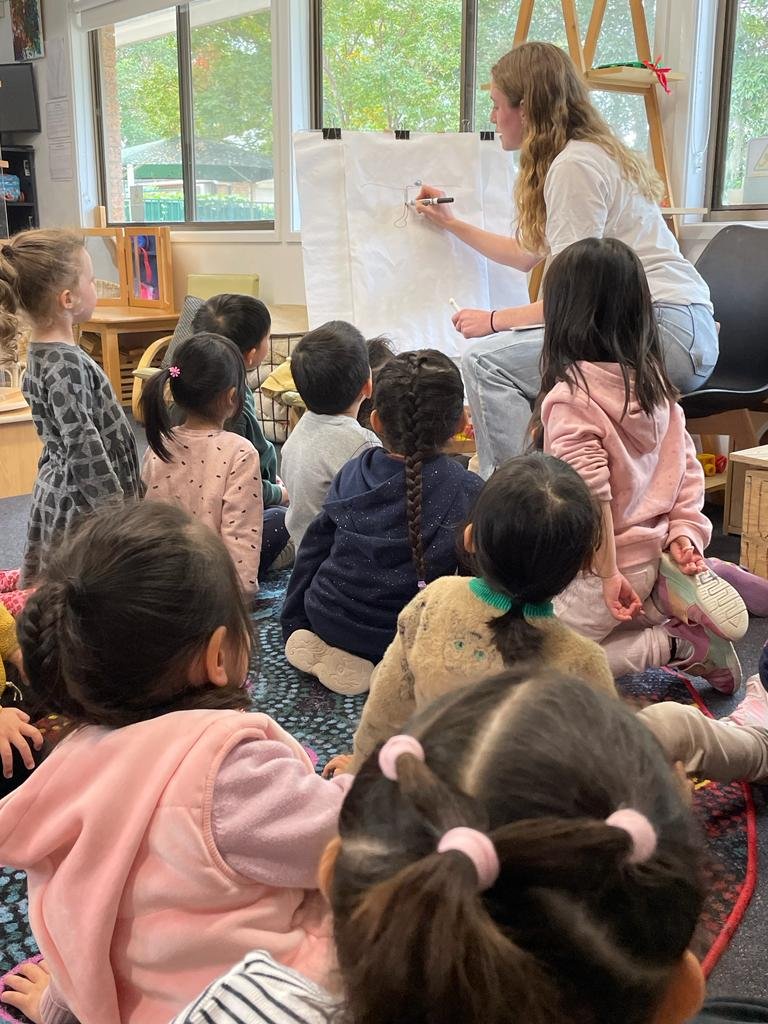
Celebrating Insects
It stands to reason. Any insect with five eyes should command our respect (take a close look at bees). And seeing the tiny gossamer wings of a butterfly is definitely awe-inspiring. As we learn more about insects and the roles they play in their lives, they share more of the spotlight. As one of the […]
>
International Day Of Biological Diversity
The theme of this year’s International Day of Biological Diversity aims to walk the talk – something PlantingSeeds does in abundance. The theme – ‘From Agreement to Action: Build Back Biodiversity – focuses attention on how we can help – beyond the dialogue. Australia is classed as a ‘megadiverse’ region – along with 17 other […]
>
Intergenerational Regeneration
A ground-breaking new application of the multi-State biodiversity B&B Highway project is bringing seniors and school students together. Based in Mordialloc in Victoria’s City of Kingston, the inter-generational program, featuring school students from St Brigid’s Catholic Primary School and seniors from Mercy Place Nixon Residential Aged Care, is supporting generations and regeneration. PlantingSeeds’ B&B Highway […]
>
Putting Insects On The Political Agenda
‘The truth is that we need invertebrates but they don't need us.’ An important quote from the famous American naturalist and ecologist, Edward O. Wilson, from his article ‘The Little Things That Run the World’, published in Conservation Biology in 1987. Wilson went on to say: ‘If human beings were to disappear tomorrow, the world would go on with little […]
>
New Australian Butterfly Discovery
For all those budding B&B Highway biologists – the discovery last week of a completely new species of Australian butterfly makes the heart go flutter! Taxonomists – that unique species of human beings who identify and name new organisms – are not the only ones to be excited by this new discovery. The identification of […]
>
An Ode To Flies
From chocolate to mangoes, chillies and onions, the humble fly is key to many of our favourite food dishes. Now that many of you have bitten into that chocolate egg and bunny, say a thank-you to the midge and hover fly. Hover flies are second only to bees in their value as commercial pollinators. The […]
>
Climate Policy In The Spotlight
While PlantingSeeds focuses on biodiversity issues, the issue of climate change has enormous implications for all species’ welfare and survival. Of significance is the recent Australian deal to strengthen a key climate policy, the safeguard mechanism (SGM), by introducing a hard cap on industrial sector emissions. With the Labor/Greens’ deal not implementing a touted ban […]
>
UN Biodiversity Summit Update
As we previously wrote about, the UN Biodiversity Conference (COP15), held in December 2022 in Montreal Canada, passed with a landmark agreement across a total of 188 governments (including Australia). It was labelled a “once-in-a-decade agreement” on biodiversity and stated its aim to pave the way for humanity and nature to live in harmony by […]
>
B&B Highway Making An Impact In The City Of Melbourne
PlantingSeeds and its flagship program, the B&B Highway (Bed and Breakfasts for Bees, Birds and Biodiversity), which received funding from the City of Melbourne for the 2022 Connected Communities Grant, allowed PlantingSeeds to work with three diverse school communities to create habitats to foster regenerative corridors of biodiversity, learnings and social connections. Habitats for birds, […]
>
A Healthy Bee Diet From Your Garden
January is a great time to start implementing healthy wholesome eating plans – for our bees! Just like us, native bees thrive on a range of colourful natural plants. Creating a happy and healthy garden for pollinators can be simply a matter of selecting a few choice plants. Here are a few to help ensure […]
>
Mega And Microbats
Like rainforests? Thank bats! Zac Albert gives us the mega and micro on bats. Bats could be described as the ‘bohemians’ of flying animals – they love the night life, are wanderers and the pollinators are definitely flower children. Because they are nocturnal, we notice them less than birds and bugs, but there is a […]
>
UN Biodiversity COP15 Summit Update
As you read this, the UN Biodiversity COP15 summit brings together nearly 200 countries to, in the words of the chair of the UK government nature agency, Natural England, ‘help sustain the web of life upon which humankind ultimately depends, for food, water, health and climate regulation’. In other sobering words, the summit is described […]
>
From The Conversation: PlantingSeeds Blitzing Biodiversity
From The Conversation, a report on how PlantingSeeds’ B&B BioBlitz has helped put citizen science on the map. This article originally appeared on The Conversation at the below link: theconversation.com/scientists-need-help-to-save-nature-with-a-smartphone-and-these-8-tips-we-can-get-our-kids-on-the-case-192622 Scientists need help to save nature. With a smartphone and these 8 tips, we can get our kids on the case Published: November 22, 2022 11.12am AEDT […]
>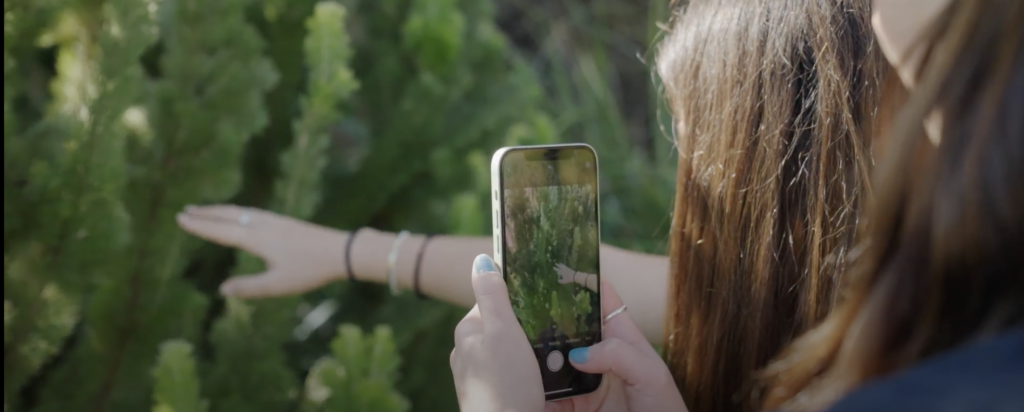
Wood Be, Should Be
The B&B Highway exists due to collaborations and partnerships, academic expertise and grassroots knowledge and actions. PlantingSeeds’ current microbat nesting box program is a positive case study in these partnerships. The construction of the nesting boxes and other items for the 2021 Responsible Wood PlantingSeeds’ Nesting Box Project has involved many individuals and organisations. The […]
>
The National School Citizen Science B&B BioBlitz Is Coming!
PlantingSeeds’ national school citizen science B&B BioBlitz in September’s National Biodiversity Month aims to engage students and teachers in this growing public science movement and contribute much-needed biodiversity data to the CSIRO’s Atlas of Living Australia (ALA). The inaugural B&B BioBlitz, which aims to capture observations of pollinators and plants, is steered by environmental organisation […]
>
Pollinator Pitch: Why Flies, Wasps And Bats Should Get A Good Rap
Firstly, our pollinator position: there are not really any ‘bad’ pollinators. Pollinators help humans and our ecosystems in unseen and under-valued ways. They help deliver delicious and nutritious food to our tables, assist in purifying water and air and are an important part of the food chain. So we thought it was opportune to present […]
>
Native Bees Flying High In Latest Biosecurity Emergency
The recent arrival of the Varroa destructor mite in this country – a mite which feeds and reproduces on honeybee larvae and pupae causing deformities and transmitting viruses – has shone the spotlight on how a lack of biodiversity can lead to what is now being called an ‘emergency’ and the number one threat for […]
>
Solitary Bees, Sundew And Slime Mold - Surreal Examples Of Biodiversity
Here are Planting Seeds, we want to protect all of our biodiversity. We even want to protect bugs like wasps, which are notoriously disliked, because they are also vital to our ecosystem. Ecosystems are highly connected networks, where one organism can have ripple effects that impact everything, from the more common ones to the very […]
>
World Bee Day: Finding Inspiration From Melbourne Home Gardens
An inspirational piece by PlantingSeeds’ Victorian expert, Tyler King, on how biodiversity, that directly benefits bees and pollinators, is being boosted in Melbourne’s suburbs’. This article originally appeared on the blog, The Anthropocene and More-Than-Human World Writing Workshop Series, under the title ‘Education, gardening and the prospect of multispecies flourishing’ One sunny Saturday morning, I’m […]
>
Earth Day 2022: Invest In Our Planet
Today is Earth Day, the 52nd annual one to be exact, to show global support for our planet. With a series of ongoing and increasingly concerning ecological issues caused by climate change and other factors, conservation and biodiversity is now paramount. It is expected that 1 billion people will participate in action of some kind […]
>
Bathurst: On The B&B Highway
The latest B&B Highway initiative is showcasing how regional centres can support our ailing pollinators to help agriculture and biodiversity. The Bathurst B&B Highway – Bed & Breakfasts for Birds, Bees, Butterflies and other Biodiversity champions – links pollinating gardens and habitats at a number of Bathurst schools, contributing to regenerative corridors. Associated education sessions […]
>
The Latest IPCC Report And Biodiversity
Climate science and biodiversity are linked and the latest 2022 IPCC review of climate science spells out how we need to integrate policies to protect and restore nature. As stated by The Guardian, it is ‘potentially the last warning before the world is set irrevocably on a path to climate breakdown’. With our focus on […]
>
Listen Now: Dr Judy Friedlander On ABC Radio Melbourne Saturday Breakfast
Dr Judy Friedlander joined host Alice Zaslavsky from ABC Radio Melbourne Saturday Breakfast on March 12th as part of their breakfast program to chat the B&B Highway and all things citizen science. Take a listen below or here.
>
Underwater Pollinators - No Longer Under The Radar
Avid readers of PlantingSeeds’ articles are familiar with pollinators and their roles in the ecosystem. From birds to bees, to bats, wasps and many others, our organisation works to shine the spotlight on pollinators’ important roles to support biodiversity. But it can be a little difficult to understand and be familiar with the As and […]
>
Quick Read: What Is A Cockatube?
Black Cockatoos are unique, very social birds that have loud and distinctive calls. In Australia, there are five species of black cockatoos - the Carnaby’s, Baudin’s, glossy black, red-tailed and yellow-tailed. Many of these species and subspecies are threatened to some degree, facing different threats and challenges, such as ongoing and extensive breeding and foraging […]
>
A Reminder To Celebrate Sustainably
We know the better part of the last two year has been hard for so many people and when everything around you leaves you heady with a festive anticipation it’s difficult not to get carried away. Eat, drink, be merry, and shop til’ you drop seems to be the theme of the season. But whether […]
>
Good COP, Bad COP
While we at PlantingSeeds focus on local efforts to help biodiversity, we are motivated by the big picture as well. In case you missed the news about COP and biodiversity (yes, the COP UN Glasgow conference wasn’t just about climate change), here are some challenging facts and developments: Which is what we, through the B&B […]
>
From Our ArcHIVES - Part 3: Taking The Sting Out Of Bees - Fun Facts About Stingless Bees
Our third instalment of delving into cognition and other cool facts about highly social insects. The grand finale of our trilogy is the stingless bee group. This is the least studied group out of other highly social bees (bumblebees and honeybees). However this does not make them any less interesting as these bees are full […]
>
From Our ArcHIVES - Part 2: Fumbling Our Way Through Some Bumblebee Facts
This is our second instalment that delves into cognition and other cool areas concerning social insects. Find the first part of our series here. Just like honeybees, bumblebees also show impressive learning abilities and are very talented little insects. In this second feature of our series, we showcase the bumble bee and its extraordinary capabilities […]
>
Pollinator Policy: Casting Our Net Across The World And Australia
Pollinators are Earth’s little champions. Bees, birds, butterflies and other pollinators are key to the reproductive success of 75% of flowering plants around the world. They are integral to ecosystems, soil and water health. They ensure global crop productivity and nutritional security. And yet, we know pollinators are in trouble and their numbers are declining […]
>
From Our ArcHIVES - Part 1: Un-Bee-Lievable Facts About The Honeybee (Apis Mellifera)
Join us for a new trilogy delving into cognition and other cool facts about highly social insects. It’s no surprise that here at PlantingSeeds we are simply buzzing about bees and all that they do for us. The team is constantly surprised and excited about their impact on biodiversity and food security. We have always […]
>
Plastics In A Pandemic
This plastic-free July, we have one big question: how have our sustainability efforts been impacted by the global Covid-19 pandemic? Patrício Silva, A.L. (et.al. 2020) argues that “with public health now being of utmost priority, along with close monitoring of economic and social impacts, the implications of COVID-19 in the environment remains largely undervalued” (pg.2). […]
>
Unlocking Nature In Lockdown
With COVID-19 lockdowns meaning more limited access to nature, it is important to find ways to encourage children, teens – in fact, all of us – to reconnect to biodiversity and all it offers. PlantingSeeds’ B&B Highway’s new citizen science session and resources, developed in collaboration with the CSIRO’s Atlas of Living Australia, is focusing […]
>
Hoverflies: The Underrated Winter Pollinator
Considered the most important pollinators in the world (LaSalle & Gauld, 1993), bees tend to take most of the pollinator limelight. However, there are dozens of other pollinators that don’t always get the attention they deserve. Such is the case of the hover flies - the small, underrated pollinators with a little quirk. Hoverflies are […]
>
It’s Not Easy Being Greener – Or Is It?
Green technology has been in the headlines a bit lately. Some, thanks to the recent G7 meeting held in Cornwall, UK to specifically showcase them as a leader in Green technologies and others because there’s some brilliant developments. One of the G7 agenda items was also global action on climate change. So, with commitments being […]
>
Ryde'ing The B&B Highway
In June, PlantingSeeds Projects launched an exciting new initiative in collaboration with the CSIRO’s Atlas of Living Australia. Citizen science, through data collection and pollinator and plant identifications, is now a key part of the B&B Highway initiative and this launch reflects that move. Utilising the 12 Ryde locations with B&B Highway regenerative habitat, we […]
>
Native, Endemic And Introduced - What Do They All Mean?
Through our B&B Highway project we have been working to create regenerative habitats to improve biodiversity in urban areas. As we have worked on these habitats, we have seen a variety of introduced, native and endemic species - creating several opportunities for pollinators to forage throughout the year. But what is the difference between introduced, […]
>
3 Types Of Solitary Bee Accomodation You Can Make At Home
Flowers – check! Shrubs – check! Herbs – check! You’ve prepared or planted your garden with these pollinator staples – but have you thought about lending a hand with some hand-made constructed homes? There are numerous homes you can build for a wide array of bees and other invertebrates. A key requirement of native solitary […]
>
Sustainability Sleuthing: Three Citizen Science Facebook Groups To Get You Started
Looking to justify time spent on-line? The good news is that if you are a bird, bug or plant fan, your searches in cyberspace can not only dig up interesting facts, they can also add to valuable scientific biodiversity knowledge as well through citizen science. You can jump on-line, post an image and a few […]
>
Pollinators - Why You Should Create Habitat And What To Consider
As we here at PlantingSeeds know, the Biodiversity of the planet is under an alarming threat with the current increase in urbanisation. Just as a reminder, pollinators provide a vital service to the ecosystem by assisting in the reproduction of the majority of flowering plants in the world. Specifically, over 87% of flowering plant species […]
>
Attracting Bees & Other Pollinators In Your Garden
Here are some practical tips for what you can do in your back garden or balcony for our pollinating birds and bees. Thanks to Birdlife Australia. For more information, head here: Birds - For carnivore birds such as kookaburras, a general no to mince as it is depleted in calcium and can be sticky. This […]
>
Citizen Science – Get ‘Appy’ To Help Our Fellow Species
We’ve been hinting at an upcoming citizen science app for a little while now. So, while our Pollinator P.I. is still in development, we thought we’d help you test out your skills with some of the already available biodiversity apps online. While citizen science in this case focuses on explorations around biodiversity and sustainability, it […]
>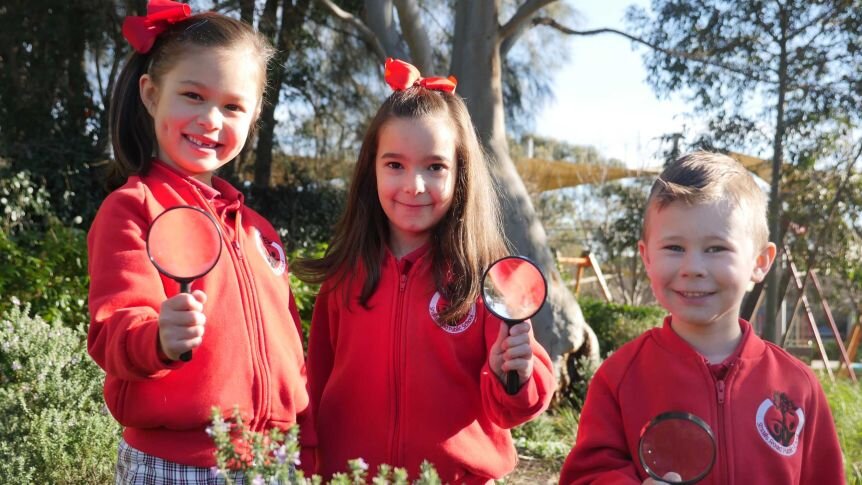
Growing Biodiverse Futures: Rewilding, Regenerating And Reimagining
(Adapted from the full article in the latest issue of Counter magazine)By Dr Judy Friedlander and Dr Tania Leimbach A number of Australian projects including the B&B Highway initiative showcase how biodiversity, appreciation of complexity and adaptive practices – through rewilding, regenerating and reimagining – enable life-sustaining food systems for the world’s growing populations. Rewilding […]
>
Wanna-Bee A Stingless Beekeeper? Experts Tell Us What To Know Before Getting Started.
PlantingSeeds’ B & B Highway project is proof positive of the growth of interest in native stingless bees. The tetragonula carbonaria has become a mascot for the regeneration movement in Australia and people are clamouring for hives and bees. It’s not just the spoonful of honey people desire – it’s this little bee’s ability to […]
>
The Hive Is Coming
Earlier this year, we asked all our followers to help us by voting in the Australian Ethical Community Grants program for 2020. Thanks to everyone who did vote, we were awarded a grant to fund The Hive - a training program for refugees with a focus on beekeeping and gardening. In collaboration with The Arab […]
>
The B & B Highway on ABC News Online
Our inititive and the work we’re doing in Ryde with the B & B Highway was recently featured on ABC News Online. Read the article here.
>
Ground Up & Top Down - A Call For Stronger Action
Being a voice and advocate for our wildlife and fellow species involves ground up and top down actions. PlantingSeeds is working hard to ‘plant seeds’ through projects such as the B & B Highway which creates pollinator gardens in public schools and other community centres. However, legislative and governmental actions to protect our biodiversity are […]
>
Our Native Bees' Spirals Go Viral
The Australian Tetragonula bee genus is in the news – even making a ‘Royal’ appearance through a journal article just published in the Royal Society Interface. Scientists are fascinated with this particular native stingless bee’s hive comb structure. Its wonderful spiral crystal shape is unique to bees and is becoming a source of fascination for […]
>
Beeing There! (And Here!) - The B & B Highway In Waverley
If you notice a gathering of birds, native stingless bees and butterflies at a local intersection or in nature near your house, it may very well be because Waverley is now hosting some ‘B & B’s’ – part of the B & B Highway. The B & B (Bed & Breakfasts for Bees, Birds, Butterflies […]
>
Ryde Is Buzzing - A B & B Highway Update
The Ryde electorate is buzzing with the news that it will be a central location for the development of the B & B Highway, PlantingSeeds’ pollinator pathway across Sydney that features ‘B & Bs’ in public schools and other educational and community centres. Supported by the NSW Department of Education, the B & B (Bed […]
>
Stingless Beekeeping - Filipino Style
Pre-COVID19, in March of 2020, I had the chance to visit the Philippines for the first time. I attended the 2nd International Meliponine Conference and Asian Apicultural Association (AAA) Philippines Symposium on Pollinator Conservation - a native bee conference held at the University of the Philippines Los Baños (UPLB) which included speakers from around the […]
>
The B & B Highway's Wentworth Launch Receives Support From Local Jewish Organisations
In October, Planting Seeds launched the Wentworth location of the B & B Highway. The launch took place at Woollahra’s Emanuel Synagogue. Members of the community joined us for the event and two local newspapers reported on the success of the event! Below is the article featured in the Sydney Jewish Report. 'to bee or […]
>
The B & B Highway On ABC News And The Conversation
Today our founder Judy Friedlander went on ABC News with Ros Childs to talk about our B & B Highway initiative. You can watch the interview below: You can also read Judy’s story on The Conversation from this week about the B & B Highway here.
>
How City B&B Gardens Can Regenerate And Help Our Distressed Pollinators
We at PlantingSeeds by FoodFaith share the sense of loss and sadness generated by the heartbreaking images of distressed, hurt and thirsty koalas, kangaroos and other animals and scenes of devastation showing dead animals. Of course, the human loss from the bushfires is shocking but so too is the impact on our animal population. Ecologist […]
>
Pollen Nation - The Buzz from the Australian Native Bee Conference
There was a real buzz in the air at the recent Australian Native Bee conference in Brisbane. Academics, farmers, educators, hobbyists and those purely and simply interested in bees were treated to presentations that showcased the latest research and developments relating to our pollinator friends. Radio station ABC Brisbane 612 featured our B & B […]
>
As Bushfires Rage, We NEED To Talk About Climate Change
The eastern seaboard’s fires that are raging across New South Wales and Queensland this late Spring are definitely a ‘state of emergency’. Almost 600 schools closed on Tuesday, November 12th, So far, over 150 homes in NSW and at least 12 in Queensland have been destroyed, a growing number of people are missing or injured, […]
>
Unlikely Pollinators and Where to Find Them
When we talk about pollinators, bees are probably the first thing that comes to mind. But there are so many others that play an important part in helping plants grow. In fact, at least 960 species of birds are pollinators, along with other insects, mammals, and even reptiles! Without pollinators, one third of our food […]
>
The B & B Highway is coming to Ryde
We’re thrilled to announce that the B & B Highway is coming to Ryde! FoodFaith has won a My Community Grant Project, which will allow Ryde residents, young and old, to host the Sydney B & B Highway - an important airborne pollinator passageway that provides ‘bed and breakfasts for birds, bees and biodiversity’. We […]
>
Marine Permaculture: Is it the Answer?
When picturing seaweed, days spent at the beach probably come to mind, swimming, only to feel something tickling your feet from the depths below. But seaweed and kelp are a lot more important for our oceans and may be more instrumental in saving our planet than they seem! Enter: Marine Permaculture, a wonderful way for […]
>
Making A Big Deal About Microplastics
Whether it’s banning plastic straws or bringing a keep cup on next your coffee run, we’re becoming more aware of how much plastic we use and its impact on the environment around us. More recently, microplastics have become the next environmental issue, with research suggesting that these tiny pieces of plastic are now present in […]
>
Composting 101: A simple guide to composting at home
Composting is a cheap and clever way to use your organic food waste for something good, while doing your bit for the environment. And even though it is known as ‘black gold’ for to gardeners, you don’t need to be a gardening pro to start composting your waste. Compost can be given away to neighbours/friends, […]
>
What happens in an insect hotel?
The word “insect” conjures up a whole range of images. Kids will talk about lady bugs, butterflies, and bees, cute creatures that dot the landscape with beauty, just like flowers in the garden, fuzzy animals and sunshine. By the time they are adults they might think of flies, stinging wasps, termites, mosquitoes and those annoying critters […]
>
B&Bs for bees in the Sydney Morning Herald
It seems everyone is buzzing about our new B&B Highway initiative… including the Sydney Morning Herald who this week shared a story titled “B&Bs for bees: the bid to save Sydney's pollinators”. Thank you for sharing our story and we can’t wait to bring the project to life! …… An airborne highway with rest stops […]
>
